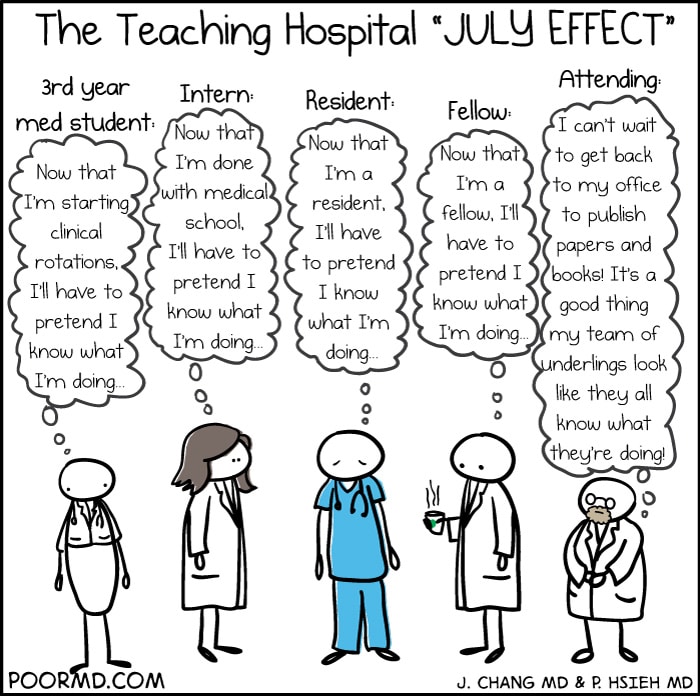The “July Effect” is the perceived phenomenon of increased medical errors, medical costs, and patient deaths seen in teaching hospitals during the month of July which also happens to be the time when new graduates from medical school begin their residencies as brand new medical doctors.
So is this a real phenomenon?
Real or not, one thing I do know is it is super stressful that first month starting off as a brand new medical student on clinical rotations, or as a new resident in the hospital, or as a new attending overseeing residents. If you are a new medical student or resident, check out my post on gear that can improve your stressful life.
In a study published by the Journal of American Board of Family Medicine entitled, The “July Effect”: A Look at July Medical Admissions in Teaching Hospitals, the authors “examined the effect of admission for myocardial infarction, heart failure, or pneumonia during the first academic quarter compared with all other quarters in teaching versus non-teaching hospitals on length of stay, cost, and mortality.
The study suggests small increases in mortality among patients admitted with myocardial infarction in the first academic quarter compared with all other quarters in teaching versus nonteaching hospitals. Increased cost and longer stay were seen for those admitted with heart failure.”
